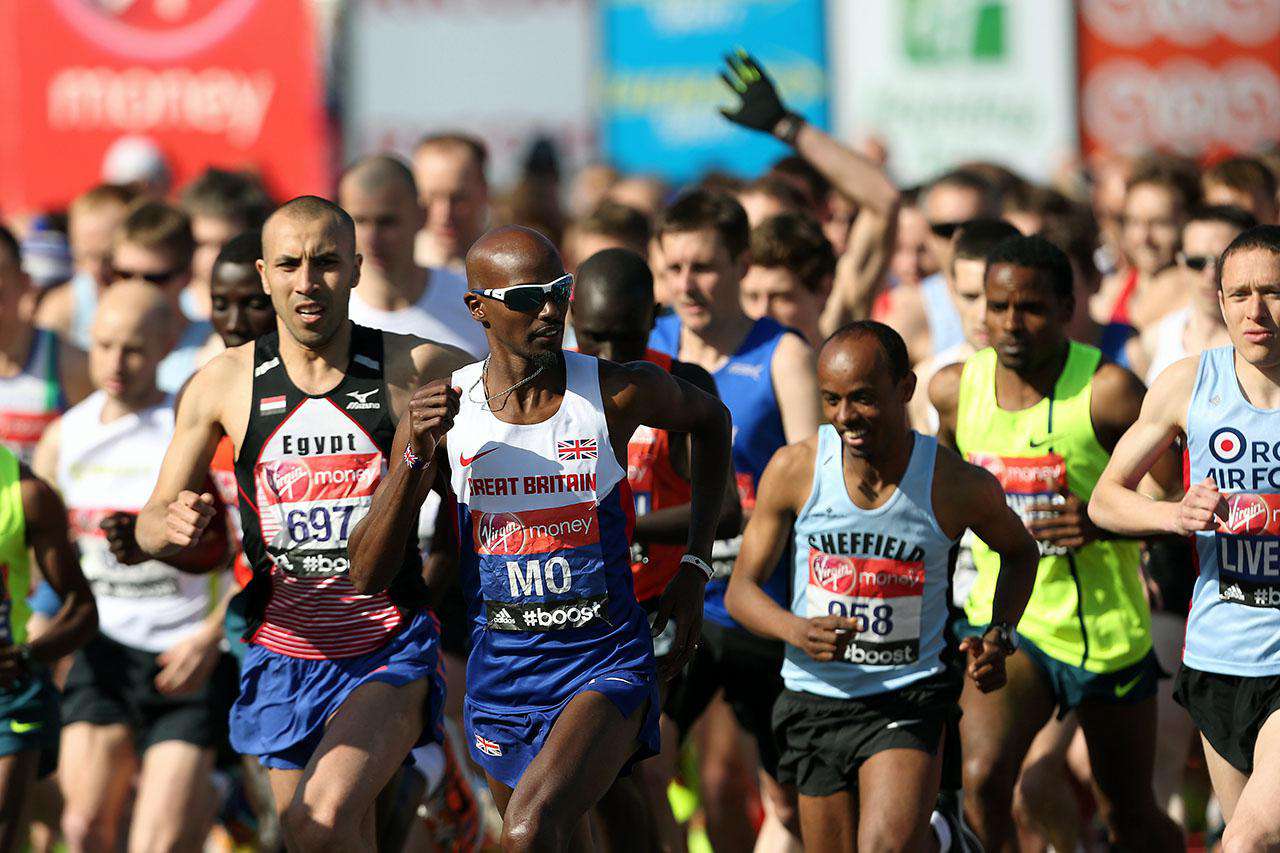Marathons, the ultimate test of endurance and determination. You’ve probably heard of them, maybe even considered running one yourself. But have you ever wondered just how long a marathon actually is? Well, you’re in the right place. In this guide, we’ll find out the true distance of a marathon and explore why it holds such significance in the world of running.

Contents
How Long is a Marathon?
The official globally recognized marathon length is 26.2 miles or 42.195 kilometers. Whether it’s the Chicago Marathon, Boston Marathon, New York City Marathon, or Berlin Marathon, each course will be the same length. This standard objective metric measurement ensures fairness and consistency across all marathons.
You might be curious about the length of a half marathon. The official half marathon length is 13.1 miles or 21.0975 kilometers. It’s a challenging distance in its own right and serves as a milestone for many runners on their way to completing a full marathon.
But let’s dig a little deeper. Why is a marathon such a peculiar length? The history of the marathon can be traced back to Ancient Greece, where a fabled run of approximately 26 miles was made by a messenger. This event later inspired the first Olympic marathon, which ultimately influenced the standard distance we have today.
How Long Does It Take To Run A Marathon?
The time it takes to run a marathon depends heavily on several factors, making it impossible to give a one-size-fits-all answer. Here’s what influences the finishing time:

Individual Factors:
- Fitness level: Elite runners can finish in under 2 hours, while recreational runners often take 4-6 hours. Beginners might aim for 5-8 hours or even walk portions of the course.
- Training: Adequate and specific training significantly impacts your pace and endurance.
- Age: Younger runners generally finish faster than older runners due to physiological differences.
- Sex: On average, men finish slightly faster than women due to biological differences.
External Factors:
- Course difficulty: Hilly courses are more challenging than flat ones, adding time to your finish.
- Weather conditions: Hot, humid weather slows most runners down.
- Elevation: Running at altitude can significantly impact performance.
- Pace strategy: Starting too fast risks tiring early, while pacing yourself consistently might lead to a better finish time.
Here’s a general idea of finishing times based on different categories:
- Elite runners: 2:00 – 2:30 hours
- Competitive runners: 2:30 – 3:30 hours
- Recreational runners: 4:00 – 5:00 hours
- Casual runners/walkers: 4:30 – 6:00+ hours (depending on cut-off times)
What Are The Benefits Of Marathon Running?
Marathon running offers a wide range of benefits that extend beyond physical fitness, touching on mental, emotional, and social aspects of well-being. Here are some of the key benefits of marathon running:

1. Physical Health Improvements:
- Enhanced Cardiovascular Health: Regular long-distance running helps strengthen the heart, reducing the risk of heart disease by improving blood circulation and lowering blood pressure.
- Increased Muscle Strength: Running a marathon requires comprehensive training that builds leg muscle strength and endurance.
- Weight Management: Marathon training burns a significant number of calories, helping with weight loss or maintenance.
- Improved Joint Health: Regular, moderate running has been shown to improve joint health, contrary to the common belief that it is harmful to the knees.
2. Mental and Emotional Benefits:
- Stress Relief: Physical activity releases endorphins, natural mood lifters that can reduce stress, anxiety, and symptoms of depression.
- Increased Self-Esteem: Completing a marathon is a significant achievement that can boost your confidence and self-esteem.
- Enhanced Mental Toughness: The discipline and commitment required for marathon training develop mental resilience and the ability to overcome challenges.
3. Social Benefits:
- Community and Camaraderie: Training for and running in marathons often introduces individuals to a community of runners, fostering friendships and a sense of belonging.
- Charitable Contributions: Many marathons are associated with charities, offering runners the opportunity to raise funds and awareness for various causes.
4. Lifestyle and Habit Formation:
- Discipline and Routine: Training for a marathon requires a disciplined approach and the development of a consistent routine, which can positively impact other areas of life.
- Healthy Lifestyle Choices: Runners often adopt healthier lifestyle choices, such as better nutrition, hydration, and sleep habits, to support their training and recovery.

5. Personal Achievement and Goal Setting:
- Goal Achievement: Completing a marathon is a clear, measurable achievement that can inspire individuals to set and pursue other life goals.
- Personal Growth: The journey to completing a marathon often involves overcoming physical and mental barriers, leading to personal growth and a deeper understanding of one’s capabilities.
Frequently Asked Questions
What is the distance of a marathon?
A marathon is 26.2 miles or 42.195 kilometers.
What is the distance of a half marathon?
A half marathon is 13.1 miles or 21.0975 kilometers.
How long does it take to train for a marathon?
Training for a marathon typically takes anywhere from 12 to 20 weeks, depending on your fitness level and experience.
How can I estimate my marathon time?
You can estimate your marathon time using a race predictor calculator or Pete Riegel’s formula. Running a shorter race first can also help determine your baseline performance.
Can I run a marathon without training?
Running a marathon without training is not recommended. Proper training is essential to ensure you are physically prepared to complete the distance safely.

Hello, I’m Ravindra. Over the years, I’ve immersed myself deeply into the world of fitness and health, transforming both my body and mind. Writing has allowed me to share my journey, insights, and expertise with those just starting out and seasoned fitness enthusiasts alike. Beyond just routines and diets, I believe in inspiring others to adopt a holistic approach to well-being.
